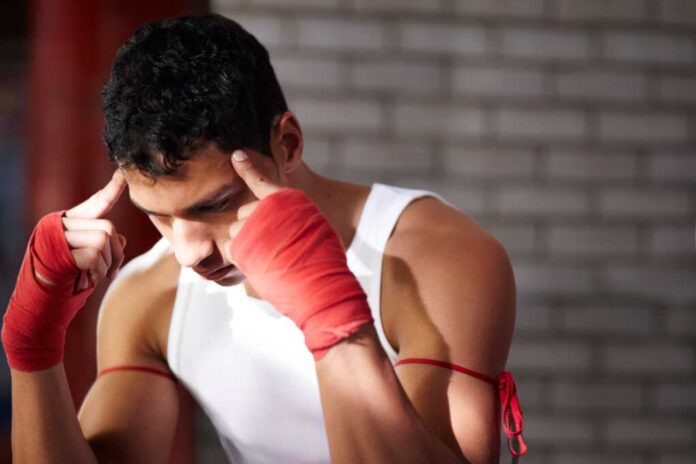
Amateur athletes now have access to revolutionary brain training technologies once reserved for elite professionals, transforming their mental game and performance potential through affordable, sophisticated tools.
At a Glance
- Brain-training technology is becoming more affordable and accessible to amateur athletes
- Virtual reality, neurofeedback, and stroboscopic training tools enhance focus, reaction time, and coordination
- Mental rehearsal techniques used by 90% of Olympic athletes can now be accessed by everyday competitors
- Mobile apps and wearable devices provide real-time data on physiological responses and mental states
- These technologies help athletes overcome anxiety, improve focus, and build confidence under pressure
The Democratization of Mental Training Technology
The gap between amateur and elite athletes is narrowing as cutting-edge mental training technologies become more accessible and affordable. What was once available only to professionals with substantial resources is now within reach of everyday athletes seeking to enhance their mental game. This democratization represents a fundamental shift in how athletes at all levels prepare for competition, with sophisticated tools addressing key mental aspects like focus, emotional regulation, and performance under pressure.
Products like Reflexion Go utilize virtual reality to improve depth perception, tracking, reaction time, and hand-eye coordination. Stroboscopic training devices such as the Senaptec Strobe Pro enhance sensory performance by intermittently disrupting vision, forcing the brain to process information more efficiently. These technologies, once prohibitively expensive, are now becoming standard components of comprehensive athletic training regimens for amateurs.
Neurofeedback and Biometric Technologies
One of the most significant advancements in mental training is neurofeedback technology, which measures brain activity and helps athletes achieve optimal mental states for performance. Systems like Myndlift use EEG sensors to provide real-time feedback on brain wave patterns, teaching users how to enter and maintain flow states—those periods of intense focus and effortless performance that characterize peak athletic achievement.
Biofeedback systems monitor physiological responses like heart rate variability, muscle tension, and skin conductance, enabling athletes to develop greater awareness and control over their bodily responses during high-pressure situations. These insights help create personalized training programs that account for both physical condition and mental-emotional states, providing a more holistic approach to athletic development.
Mental Rehearsal and Visualization Techniques
Mental rehearsal—visualizing actions or skills without physically performing them—has long been a staple technique among elite athletes. Technology now enhances this practice through immersive virtual reality environments that simulate competition scenarios with remarkable realism. These systems help athletes practice under stress, improving decision-making and emotional regulation while creating neural pathways that support improved physical performance.
Research indicates that approximately 90% of Olympic athletes use visualization techniques. Amateur athletes can now access guided visualization programs through mobile apps that walk them through techniques like reliving past successes, rescripting mistakes, and pre-experiencing future events—all powerful methods for building confidence and improving performance consistency.
Comprehensive Mental Training Platforms
Mobile applications now serve as comprehensive mental training platforms, democratizing access to advanced psychological skills training (PST). These applications guide users through techniques like mindfulness meditation, deep breathing exercises, positive self-talk, and goal-setting—all evidence-based methods for managing anxiety, improving focus, and building confidence. By integrating these practices into regular training routines, amateur athletes can develop mental resilience comparable to their professional counterparts.
Advanced platforms like Rewire combine physical and cognitive recovery tracking with tools for building mental resilience. These systems provide coaches and athletes with insights that help optimize training loads and recovery periods, reducing injury risk while maximizing performance gains. The integration of data analytics and machine learning identifies patterns and predicts potential issues before they become problematic, creating truly personalized training experiences.
The Future of Mental Training Technology
As these technologies continue to evolve, the distinction between amateur and professional mental training will likely diminish further. Future developments may include more sophisticated brain training protocols, advanced genetic analysis for personalized mental training recommendations, and increasingly immersive virtual reality environments. The integration of artificial intelligence will further enhance the ability of these systems to adapt to individual needs and progress.
For amateur athletes in their 40s and beyond, these technologies offer particularly valuable benefits. The ability to train smarter rather than harder becomes increasingly important with age, as does the need for efficient recovery and injury prevention. Mental training technologies provide tools that enhance performance without increasing physical strain, allowing athletes to continue improving and competing effectively throughout their lifespan.
Sources:
https://www.menshealth.com/health/a64297824/strength-speed-training-brain/
https://www.acutemarketreports.com/press/breakthrough-in-sports-psychology-technology
The Mental Edge: 90% of Olympic Athletes Use This Tool. Do You?
https://pmc.ncbi.nlm.nih.gov/articles/PMC9859147/
https://www.sciencedirect.com/science/article/abs/pii/S1469029221001266
https://rewirefitness.app/training-tips/mental-training-for-athletes-what-is-it-and-how-to-start/
https://tomorrowdesk.com/future/sport-tech


















